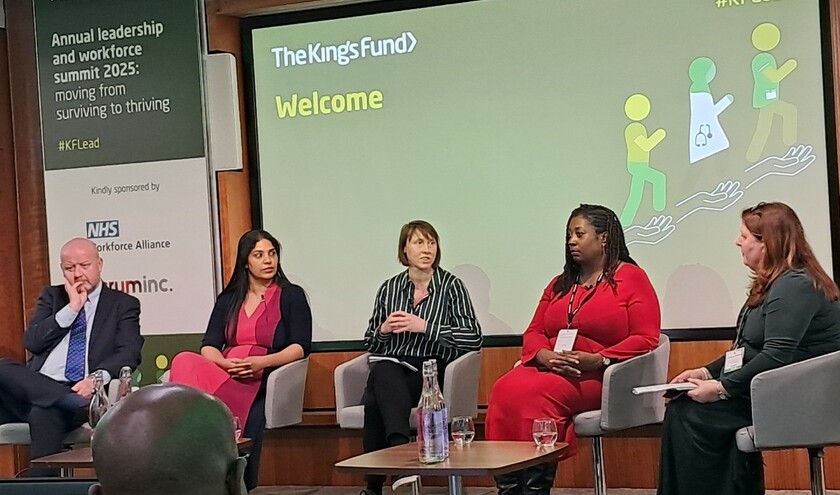Dr Navina Evans, chief workforce, training and education officer at NHS England, took the audience through the recently published annual NHS Staff Survey and National Education and Training Survey. She highlighted the newly published National Induction Framework, designed for new starters, which provides essential guidance on navigating complex organisations and delivering integrated services.
Dr Evans said: ‘In the first two weeks, the induction toolkit page has been visited over 1,800 people, so that's a great start.'
Kate Shoesmith, deputy chief executive of the Recruitment and Employment Confederation (REC), raised issues with NHS recruitment process. She told delegates that one REC member did some work with an ICB. She said: ‘It was taking 30 days on receipt of the CV to get any form of acknowledgement to that candidate.
'It was taking 56 days after an interview, this was the ICB manager, to get an outcome from the interview on average. These were clinical roles as well. And then the onboarding process was taking over 130 days, that wouldn't be acceptable in any private sector organisation whatsoever, and funnily enough candidates were walking away.'
Will Laing, operations director at NHS Workforce Alliance, highlighted some issues when trusts previously tried to cut their spend on agency workers.
He said: ‘Workforce is where the majority of the NHS budget, year on year, goes. It's extremely complicated, and there are so many different departments and divisions within even a single NHS trust … those different departmental functions are not always particularly well integrated, and don't necessarily know what the implications are for each other.'
Consultant Kathryn Perera told the conference that she had been disappointed by the narrative of recent weeks, about the NHS having to remove waste. ‘These are people,' she pointed out.
The event's keynote address came from NHS England chief executive Amanda Pritchard, marking her last public speaking engagement for some time.
She said: ‘I have been reflecting a lot on leadership over the last few weeks, some of that has been reminiscing about the peculiarities and the challenges that come with this particular position. The obvious ones, like four prime ministers, six secretaries of state, if you count Steve Barclay twice.
‘And the lesser known ones that they don't tell you about when you apply - the duties you have to perform to maintain effective relationships, which are definitely not part of the management training scheme, like being asked to attend a late-night party in the office of one of the secretaries of state, who I shall not name, to mark the publication of a new plan.'



